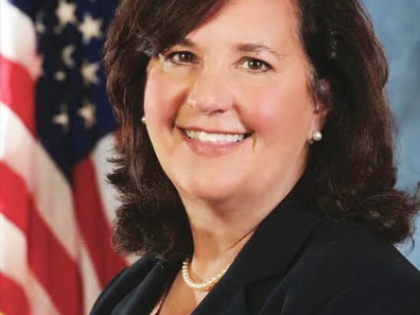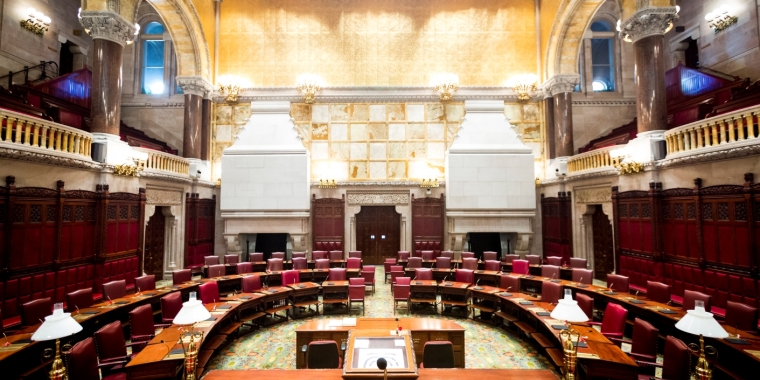
Op-ed: Changing course in New York on mental wellness
As the state budget process continues to unfold, we must take a hard look at our priorities. Among them, mental wellness must take center stage. For too long, mental health has been an afterthought in budget negotiations, receiving inadequate funding despite its profound impact on individuals and our communities. It is past time to treat mental health with the same urgency as physical health, ensuring that all New Yorkers have access to the resources they need to lead stable, fulfilling lives.
We must continue to make strides to address the youth mental health crisis. While legislation I cosponsored to prohibit social media companies from utilizing addictive feed algorithms on children or sending them notifications between midnight and 6 a.m. was signed into law last year, we have seen how Covid-19 has exacerbated the rise in mental health struggles in our youth, and there is more work to be done.
According to one study, only one in four children on Medicaid who are in need of behavioral health services are receiving those services. The state must provide adequate funding for Child and Family Treatment and Support Services and Children’s Home and Community Based Services to fill the gaps in necessary services. I support efforts by Gov. Kathy Hochul to bolster mental health directly in our schools, and, in fact, legislation to fund schools’ hiring of mental health services professionals was among the first bills I introduced in the Senate. I similarly support expansions of teen Mental Health First Aid, the establishment of Comprehensive Clinical Assessment hubs, youth safe spaces and School Mental Health Resource and Training Centers.
One of the most glaring inadequacies in the state’s prior mental health investments has been in the workforce. Direct Support Professionals and other human-services sector workers provide critical services to people in need, but wage increases over the years have been dramatically below inflation. Although there have been steps in the right direction in recent years for increasing funding in the mental health and intellectual and developmental disabilities workforces, years of disinvestment have compounded and resulted in serious workforce challenges. For example, nonprofit provider agencies have a staff vacancy rate of roughly 17 percent, and the annual turnover rate of DSPs is more than 35 percent.
Hochul has proposed a 2.1 percent cost-of-living adjustment in her budget proposal, which is below what is necessary to make up for years of punishingly high inflation without commensurate COLAs, and doesn’t even match last year’s 2.9 percent inflation. I am advocating for the final budget to include a 7.8 percent COLA.
We have seen the devastating impact that the pandemic and economic shutdowns had on many individuals, families and entire communities that are still trying to recover. According to the state comptroller, homelessness in New York more than doubled between January 2022 and January 2024, and it is difficult to ignore the rise in the number of those who are visibly struggling with mental health episodes on our streets — nor should we ignore it.
Alarmingly, nearly 40 percent of adult New Yorkers with serious mental illness did not receive treatment in the past year. The proposed inclusion of $16.5 million to support counties to enhance Assisted Outpatient Treatment would provide critical resources to assist people in crisis. Paired with thoughtful reforms of the laws that allow for hospitalizing those who pose a danger to themselves and others — Kendra’s Law — New York can combat the negative feedback loop in which communities struggle to prosper as residents and visitors are deterred by safety concerns, which leads to those communities not having adequate funding or resources necessary to assist those in crisis.
As well, more funding is needed to support law enforcement’s efforts to reduce recidivism and incarceration, and the budget needs to increase funding for the jail-based Substance Abuse Disorder and Medication Assisted Treatment programs that jails and other correctional facilities are required to provide. I join law enforcement in supporting an increase in these programs from $9.1 million to roughly $20 million.
It is essential that all of these components — and more — are included in the final state budget, so that we can have a comprehensive approach to addressing New Yorkers’ mental wellness needs. As the ranking member of the Senate Mental Health Committee, I will continue to fight in Albany to ensure that these issues, which directly impact our communities and New Yorkers across the state, are adequately addressed in our budget.
Patricia Canzoneri-Fitzpatrick represents the 9th State Senate District

